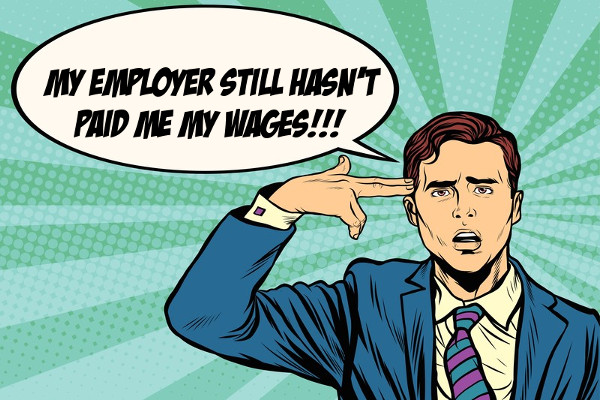
Top 4 Labor Law Rights Every Brand Ambassador Should Know
02 Jan 2017
Brand ambassador jobs have grown substantially in the past five years as companies look to expand their recognition. Temp agencies, serving as the middle men between large corporations and brand ambassadors, have profited extensively as a result. But as others have benefited from this lucrative industry, brand ambassadors have found themselves victims of wage theft. Talk to any brand ambassador, and they will tell you horror stories about late paychecks, unpaid overtime, and denied meal and rest periods. Here are 4 crucial labor law rights every brand ambassador should know to stop getting ripped off:
1. Prompt Payment of Wages:
If you have had wages withheld from you, then you may be eligible to receive penalties from your employer. If your staffing agency discharged you from employment (you were terminated and given no further assignments), by law you should have received your final paycheck on your last day of work. If your staffing agency failed to pay you on your last day, your wages continue as waiting time penalties until paid, for a maximum of thirty days. Example: Sally works as a brand ambassador for a famous television brand at a kiosk at the local mall. She works 8 hours a day for 5 days straight with an hourly wage of $15. After completing her shift on the 5th day, she is fired, but the staffing agency fails to pay her immediately on that same day. She is not given her final check for another 30 days. She is owed an additional: 8hrsx$15x30days= $3,600 in penalties. Again the rule is simple, any wage you earned but were unpaid when the employer terminated or discharge you are due and payable immediately.
If you voluntarily quit, but provided 72 hours of notice to the agency prior to quitting, the agency must pay you on your final day of work or face the same penalties discussed above. If you do not provide 72 hours of notice prior to quitting, the agency has 72 hours to provide you with your final paycheck, after which it will face the same penalties discussed above.
2. Lunch Breaks & Rest Breaks for Brand Ambassadors:
Under Labor Code section 512, brand ambassadors who work over 5 hours in a day are entitled to a lunch break of at least 30 minutes. Further, they must be provided an second lunch break of 30 minutes if they work over 10 hours in a day. During these meals they must be relieved of all duty and be allowed to leave the premises. Similarly, brand ambassadors must be provided with a 10-minute rest break for every four hours worked. Both lunch breaks and rest breaks are non-waivable rights, although some exceptions exist. Any agreements requiring brand ambassadors to waive such breaks are non-enforceable.
What Penalties can I receive from my employer for denied rest breaks and lunch breaks?
Any employer who denies you a meal break or rest break must pay you an additional hour of premium pay at your regular rate of pay for each break denied (maximum of two per day allowed). Example: Joan is assigned to work at a convention representing a famous brand. She works for five days straight, but is told that she may not take a lunch breaks or rest breaks during that period. She works 8 hours each day at a regular rate of $20 an hour. Besides her wages, she is owed $200 in meal and rest break premiums ($20x 2 missed breaks per day x 5 days).
3. Complete & Accurate Pay Stubs:
Labor Code section 226 requires that companies employing brand ambassadors provide the following information on pay stubs: (1) employer’s name and address, (2) employee’s name and the last four digits of his/her social security number, (3) the period for which the employee is getting paid, (4) gross wages earned, (5) the hourly rate and total hours worked, (6) all deductions, (7) net wages earned, (8) the rate of pay and total hours worked for each assignment. If your employer has not provided you with accurate and complete pay stubs, you may be eligible to receive penalties.
4. Brand Ambassador Overtime Pay:
Often, agencies attempt to deny brand ambassadors overtime pay by tricking them into believing they are exempt independent contractors or by having them sign unenforceable sham agreements waiving their right to overtime pay. Unfortunately, few questions are ever asked by these workers as most go on believing they truly are exempt from receiving overtime. Meanwhile the agencies reap large sums of money cheating hard working individuals. These types of policies are illegal and constitute misclassification.
What is Overtime?
In California, employers must pay their employees one and a half times the employee’s regular rate of pay if he/she works over 40 hours per week or over 8 hours per day. Double the regular rate of pay is owed if the employee works over 12 hours in a day. An employer must also pay one and a half the employee’s regular rate of pay as overtime for any work performed up to eight hours on the seventh consecutive day of work in a workweek, and double the rate of pay for any work performed in excess of eight hours on the seventh consecutive day.
Example: Sarah works as a brand ambassador at an event. Her regular rate of pay is $20 an hour. She works 9 hours in one day. She is owed one hour of overtime at $30 an hour (1.5x$20). 8 hours at her regular rate is 8×20=$160 + 1 hour of overtime at $30=$190 total for the day.


